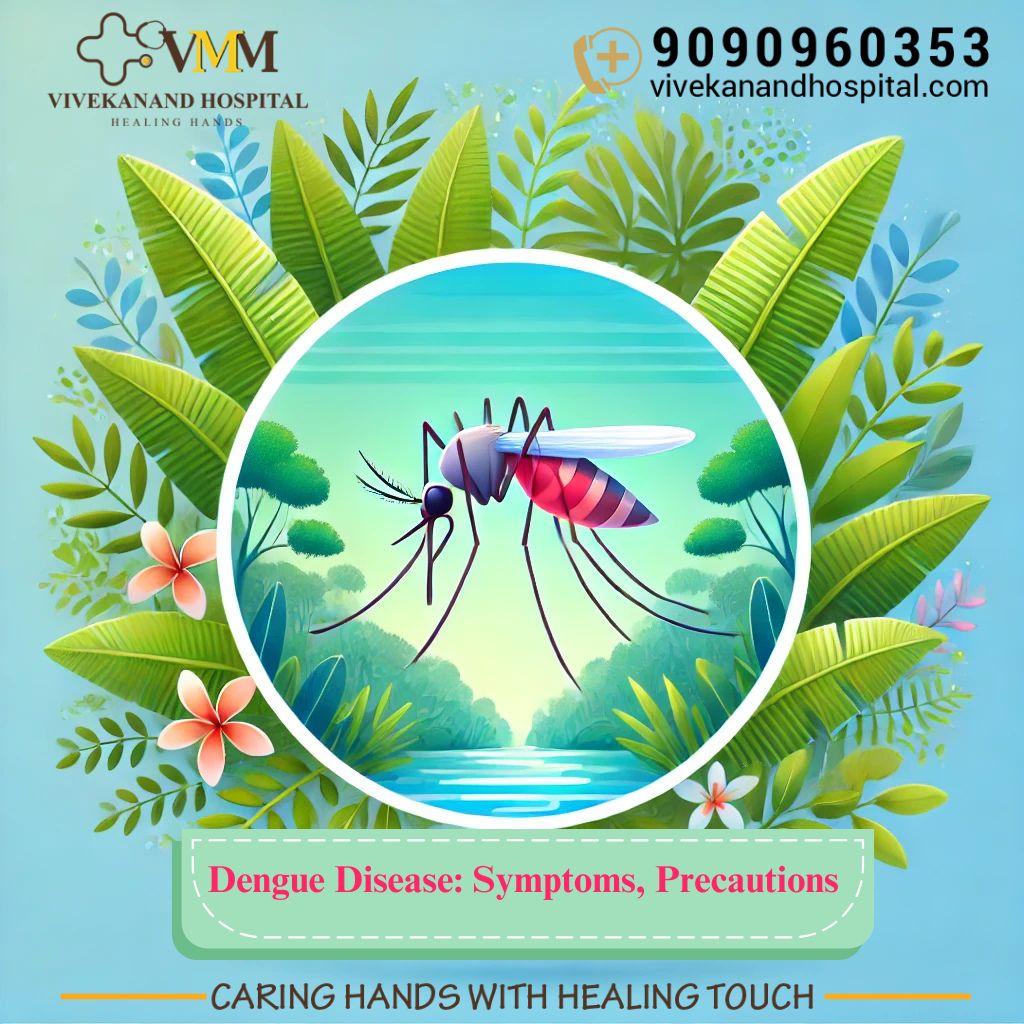Introduction:
Dengue fever, a mosquito-borne viral infection, poses a significant health risk, particularly in tropical and subtropical regions like India. Characterized by flu-like symptoms, it can escalate into severe dengue, a potentially life-threatening condition. With increasing cases during the monsoon season, understanding its symptoms and taking preventive measures is crucial. This article by Vivekanand Hospital, Bhubaneswar, provides a comprehensive guide to help you safeguard your health.
Dengue fever is caused by the dengue virus, transmitted primarily through the bite of infected Aedes mosquitoes, particularly Aedes aegypti. It has four distinct serotypes (DENV-1 to DENV-4), meaning a person can be infected up to four times in their lifetime.
Symptoms of Dengue Fever:
Recognizing the early symptoms of dengue can lead to timely medical intervention. Common symptoms include:
– High Fever (up to 104°F)
– Severe Headache
– Pain Behind the Eyes
– Joint and Muscle Pain
– Fatigue and Weakness
– Nausea and Vomiting
– Skin Rash (appears 2-5 days after fever onset)
– Mild Bleeding (such as nose or gum bleeding)
Severe dengue symptoms, which require immediate medical attention, include:
– Severe abdominal pain
– Persistent vomiting
– Rapid breathing
– Bleeding gums
– Fatigue or restlessness
– Blood in vomit or stool
Read Also: Comprehensive Treatment for Spinal Cord Disorders | Vivekanand Hospital
Precautions to Prevent Dengue:
Avoid Mosquito Bites: Use insect repellents containing DEET, picaridin, or oil of lemon eucalyptus. Wear long-sleeved shirts and long pants, especially during dawn and dusk.
Eliminate Mosquito Breeding Sites: Empty, clean, or cover water storage containers regularly. Dispose of unused tires, cans, and other items that collect water.
Use Mosquito Nets: Sleep under a mosquito net, particularly in areas with high mosquito activity.
Install Window and Door Screens: Prevent mosquitoes from entering your living space.
Community Efforts: Participate in local cleanliness drives to ensure proper waste disposal and eliminate stagnant water sources.
Treatment Options:
Currently, there is no specific antiviral treatment for dengue. Supportive care is the cornerstone of management:
– Stay hydrated to prevent dehydration from fever and vomiting.
– Use paracetamol to manage fever and pain. Avoid aspirin or ibuprofen as they can increase bleeding risks.
– Seek immediate medical care if symptoms worsen or signs of severe dengue appear.
Conclusion:
Dengue fever is preventable with awareness and proactive measures. By understanding its symptoms and adhering to the precautions outlined, you can significantly reduce the risk of infection. Vivekanand Hospital, Bhubaneswar, is committed to promoting health and providing timely care for dengue patients. Together, we can build a healthier and safer Odisha.

